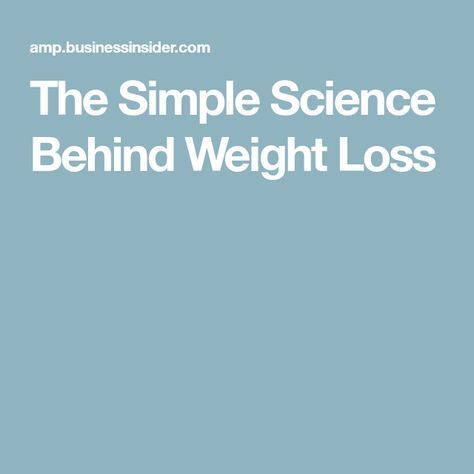In today’s society, weight loss and exercise have become hot topics. Many individuals strive to achieve their desired weight and maintain a healthy lifestyle. However, it’s important to understand the science behind weight loss and exercise to maximize the effectiveness of your efforts.
The Basics of Weight Loss
Weight loss occurs when the number of calories burned exceeds the number of calories consumed. This concept is known as a calorie deficit. When you consume fewer calories than your body needs for daily functioning, it begins to use stored fat as a source of energy.
The Role of Diet
Diet plays a crucial role in weight loss. A well-balanced diet consisting of a variety of nutrients is essential. Protein, carbohydrates, and healthy fats are all necessary for proper bodily functions.
Protein-rich foods help preserve muscle mass and aid in muscle repair after exercise. Carbohydrates provide energy, while healthy fats are crucial for hormone production and nutrient absorption.
Restricting calories too much can have negative effects on the body, such as a decrease in metabolism and muscle loss. It’s important to find the right balance and avoid extreme diets.
The Importance of Exercise
Exercise is not only beneficial for weight loss but also for overall health and well-being. When you engage in physical activity, your body burns calories and fat, contributing to weight loss and improved body composition.
Cardiovascular exercises, such as running, cycling, or swimming, increase your heart rate and help burn calories. Strength training exercises, on the other hand, build muscle mass and boost your metabolism, allowing you to burn more calories even at rest.
Regular exercise also offers numerous health benefits, including reducing the risk of chronic diseases like heart disease, diabetes, and certain cancers. It improves mental health, enhances mood, and promotes better sleep.
The Science of Metabolism
Your metabolism, or metabolic rate, is the process by which your body converts food into energy. It is influenced by various factors, including genetics, age, body composition, and activity level.
The basal metabolic rate (BMR) is the number of calories your body needs to perform basic functions at rest. Muscle mass plays a significant role in determining your BMR, as muscle requires more energy to maintain compared to fat.
Regular exercise, especially strength training, helps increase muscle mass and subsequently raises your BMR. This means that individuals with more muscle burn more calories even when they are not exercising.
Combining Diet and Exercise
The most effective approach to weight loss involves a combination of a healthy diet and regular exercise. By creating a calorie deficit through a balanced diet and increasing physical activity, you can maximize weight loss results.
It’s important to note that sustainable weight loss takes time and consistency. Crash diets and extreme exercise routines may produce fast results initially, but they are often challenging to maintain, leading to rebound weight gain.
The Role of Rest and Recovery
Rest and recovery are as vital as exercise and diet in achieving weight loss goals. Adequate sleep allows your body to repair and rebuild muscles, regulate hormones, and support overall well-being.
Overtraining and a lack of recovery time can lead to muscle breakdown, decreased immune function, and increased risk of injury. Therefore, it’s crucial to listen to your body’s needs and incorporate rest days into your exercise routine.
Conclusion
Understanding the science behind weight loss and exercise enables you to make informed decisions about your health journey. By combining a balanced diet, regular exercise, and proper rest, you can achieve sustainable weight loss while improving your overall well-being.

